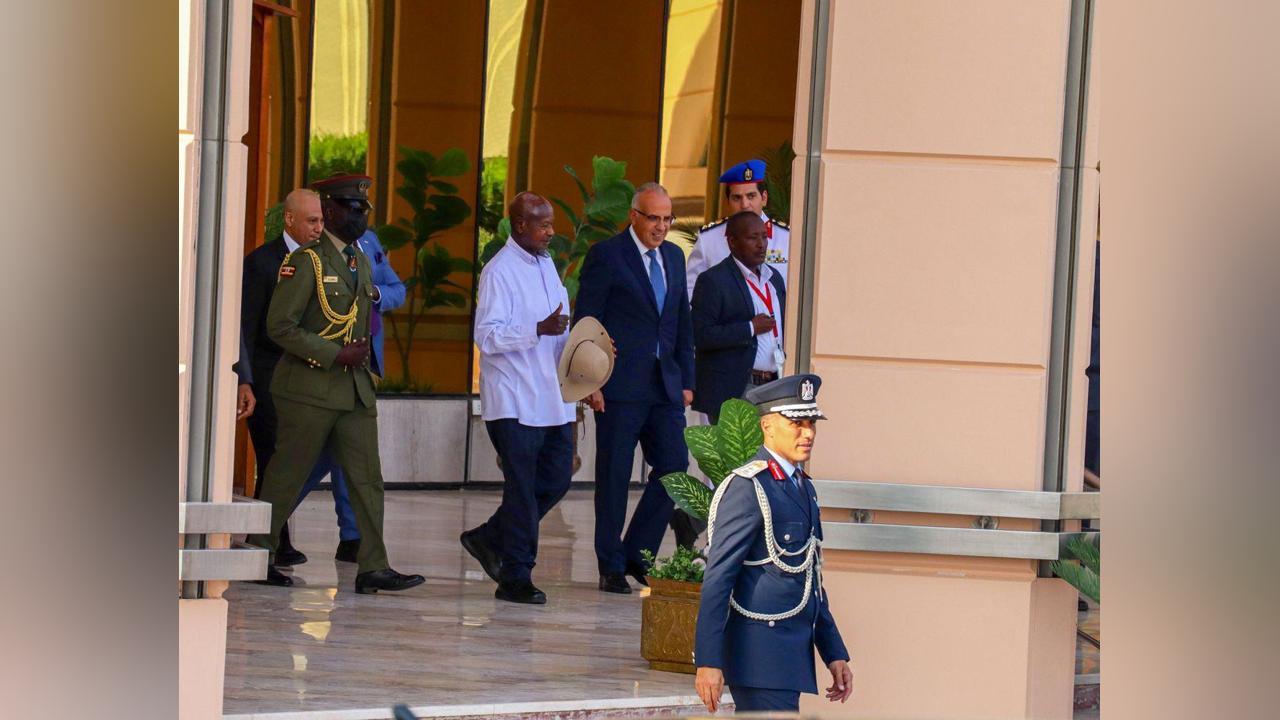Africa-Press – Uganda. President Museveni has arrived in Egypt for a rare high-level diplomatic visit with Egyptian President Abdel Fattah el-Sisi, signaling a renewed effort to deepen bilateral relations amid growing regional tensions over Nile water rights and instability in the Horn of Africa.
Photos from Cairo International Airport show the two leaders exchanging greetings following weeks of diplomatic engagement, including a direct phone call and formal message exchanges.
Analysts interpret the visit as a clear indication of both countries’ urgency to align strategic interests as control over the Nile’s waters and regional security concerns reach a critical juncture.
The Nile River, a vital lifeline for millions across northeastern Africa, has long been a diplomatic fault line.
Egypt, historically the dominant downstream power, has based its control on colonial-era agreements that grant it significant influence over the river’s flow.
Meanwhile, Uganda, an upstream nation, has increasingly pursued hydropower and development projects, signaling a shift that could challenge the regional balance of power.
According to the Journal of African Studies (2023), presidential visits such as this often precede negotiations over water-sharing or technical cooperation agreements, especially involving upstream states like Uganda.
Such engagements are both diplomatic leverage and a challenge to Egypt’s long-standing dominance.
“As Uganda expands its hydropower infrastructure, the country is seeking a more equitable share of Nile resources,” said Dr Janet Kisembo, a regional water governance expert based in Kampala.
“Museveni’s visit to Cairo is both strategic and symbolic.”
Beyond water issues, Egypt and Uganda share a complex history of cooperation spanning over three decades, including military training, intelligence sharing, and counterterrorism efforts, as documented by Egypt’s State Information Service (SIS).
The leaders are also expected to discuss the ongoing conflict in Sudan, whose instability poses significant risks to both countries, particularly regarding refugee flows and regional trade routes.
With multiple crises unfolding in East Africa—from the contentious Grand Ethiopian Renaissance Dam (GERD) dispute to escalating violence in Sudan—Museveni’s visit marks a pivotal moment in regional diplomacy.
Experts suggest the talks could lead to new frameworks for resource sharing, enhanced security coordination, or joint infrastructure investments.
“This is not just about water—it’s about long-term regional stability,” Kisembo said. “The Nile connects these countries, but so do their economic and security futures.”
While official outcomes from the discussions have yet to be announced, both governments are expected to issue a joint communiqué in the coming days.
The results could reshape not only Egypt-Uganda relations but the broader dynamics across the Nile Basin.
For More News And Analysis About Uganda Follow Africa-Press






